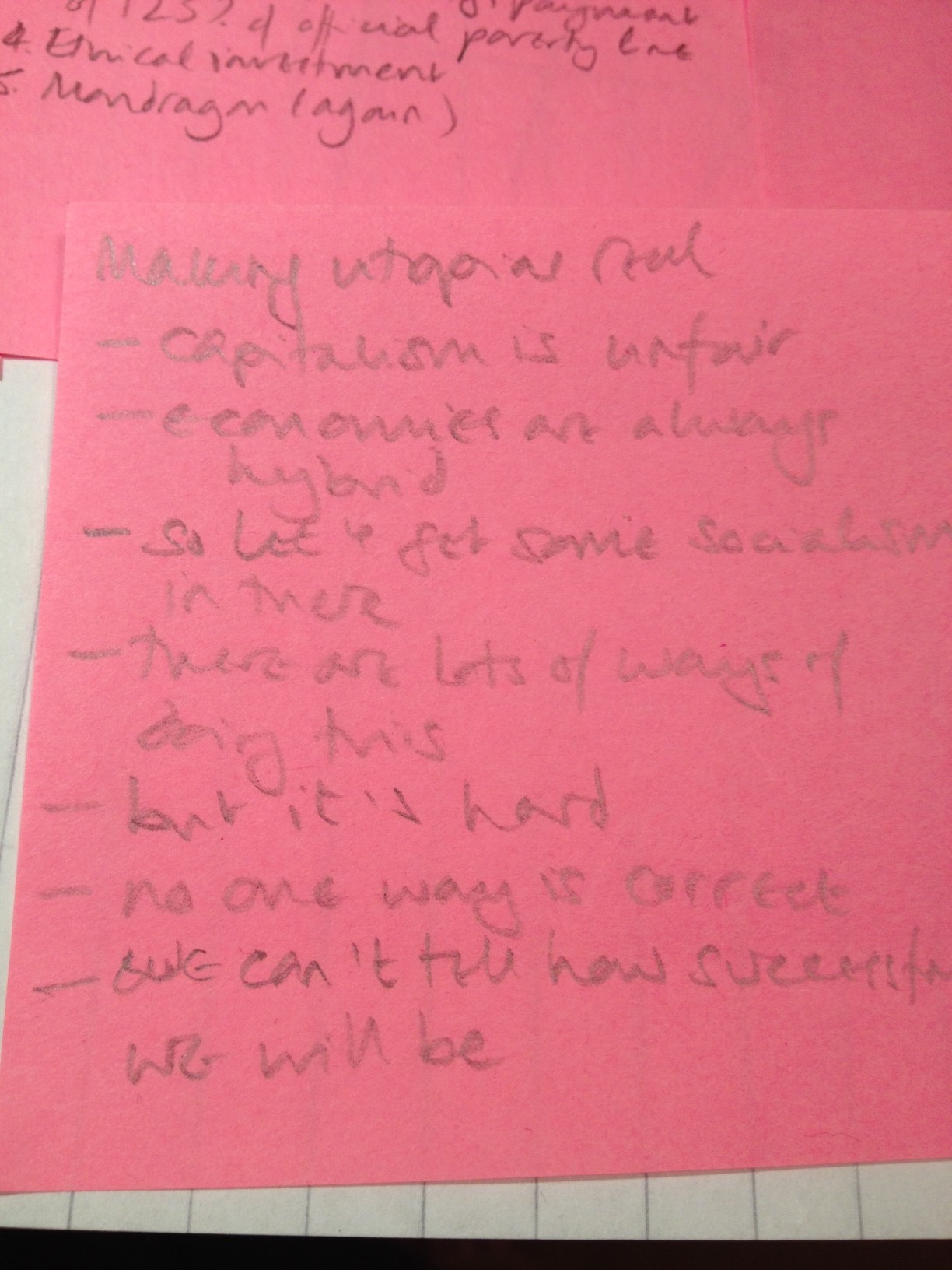It has taken me some weeks to read Mary Poovey’s [amazon_link id=”0226675335″ target=”_blank” ]Genres of the Credit Economy: Mediating Value in 18th and 19th Century Britain[/amazon_link]. She is a Professor of English, so writing in a different academic language than the one I’m used to, and it’s quite a dense book of subtle argument and loads of detail about the evolution of finance in early capitalist Britain. Yet it has amply repaid the effort. Poovey’s argument is fascinating and, I think, persuasive.
The book traces the separation from the 18th century onward of three different genres of writing that were not all that distinct to start with. The era described in the book saw huge growth in the amount being written and published, and in literacy and the appetite for information among readers. It was the Information Age 1.0. (In fact, I learned from the book that Thomas Carlyle designated 1774-1784 the start of the ‘Paper Age.’)
One ‘genre’ considered here is the writing on financial instruments, including bank notes: what began as quite discursive text on bills of exchange about the creditor and debtor, and the hands through which the bills passed, and the specific promises and dates they contained gradually became standardised and more or less invisible (as fictional writing). By the late 19th century, the leap of faith that was needed to trust the fiat money of Bank of England notes and commercial bills only ever came into focus during financial crises.
The second genre is writing about political economy, or factual writing about money, and the third literary writing. Poovey demonstrates that in the early part of the period she looks at, writers did not hesitate to use fiction and fables to write about financial matters. Yet steadily both the abstract language of professional scholarly economics and the factual writing provided by the emerging class of financial journalists drove out literary and imaginative ways of understanding credit. In parallel, literary writers were at pains to demarcate their fictional writing from the taint of the marketplace – although increasing numbers of literary writers sought to sell their work, they were disdainful about commerce, including the non-literary fictions and publications that sold well to the emerging mass market of readers. Indeed, criticism of the market became the only acceptable way for the literary world to relate to the market.
From my perspective as an economist, the most interesting parts of the book concern the causes and consequences of the professionalisation of economics as a serious intellectual discipline. As Poovey writes:
“If economic writers had not pursued natural philosophical and then mathematical models to the exclusion of other ways of modelling value, if these writers had not been successful in popularizing a theoretical consensus about which economic questions mattered, and if they had not embraced marginal utility theory in a way that narrowed the discipline and ignored what their models could not explain, economics as a discipline might not have assumed the form it now takes. By the same token, …. if Literary writers had not cloaked their participation in the market economy …. then imaginative writing of all kinds might now seem to have something to contribute to the discussions about value we need so desperately to restart. …. Writers developed genres that seemed to be different in kind and were arranged in an increasingly rigid hierarchy that divided their audiences in ever-more-differentiated segments too.”
It is interesting to note that she sets economics’ ambition to attain the status of the natural sciences far earlier than often claimed – in the marginal revolution and adoption of utilitarianism, rather than in the cybernetic era (as claimed for example by Philip Mirowski in [amazon_link id=”0521775264″ target=”_blank” ]Machine Dreams: Economics Becomes a Cyborg Science[/amazon_link]). I also found it illuminating to follow Poovey’s tracing of the increasing abstraction and adoption of jargon by early economics writers. Some, including J.S.Mill, acknowledged that this abstraction had limitations when it came to describing the reality of the economy, and suggested this would change as the infant science grew to maturity, and political economists learned more. As we know, however, the habit of abstraction has stuck.
The argument in this book has some similarities to Richard Bronk’s [amazon_link id=”0521735157″ target=”_blank” ]The Romantic Economist[/amazon_link] – he advocated bringing the techniques and habits of mind of literature to an understanding of the economy. I also found echoes of Deirdre McCloskey’s [amazon_link id=”0472067443″ target=”_blank” ]How To Be Human (Though An Economist)[/amazon_link], a marvellous dissection of the kinds of rhetoric used in economics. What Poovey adds, that ought to be thought-provoking for economists, is the realisation that our habitual way of thinking about the economic and financial world does not have a natural epistemological superiority over other ways of thinking about the subject, not even poetry.
Perhaps the problem is that the poets have abandoned the territory.
[amazon_image id=”0226675335″ link=”true” target=”_blank” size=”medium” ]Genres of the Credit Economy: Mediating Value in Eighteenth- and Nineteenth-Century Britain[/amazon_image]


